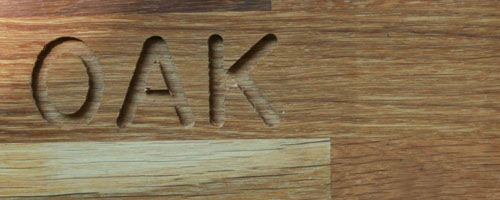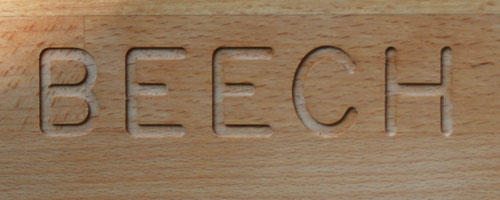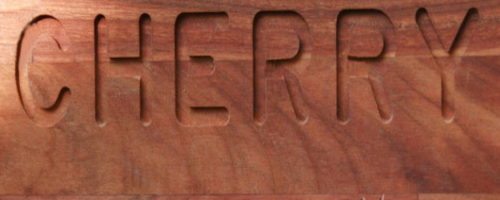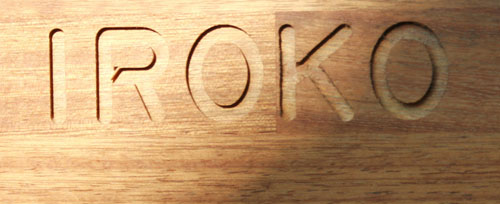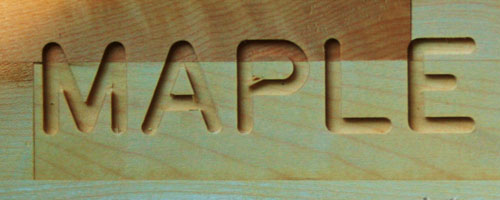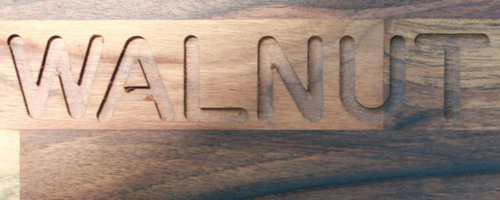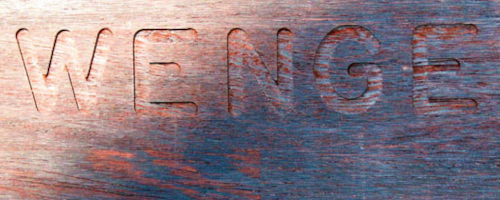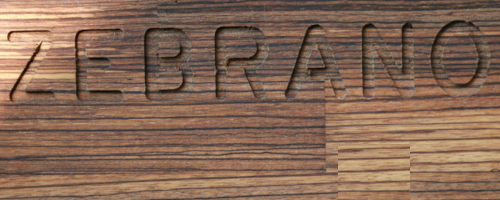
Solid Wood Worktops
Contemporary solid wood worktops for a kitchen with timeless style.
Have the kitchen of your dreams with easy maintenance. Buy real wood worktops now. Select from one of the woods below to learn more and order online from select stockists.
The addition of a solid wood worktop can turn an ordinary kitchen into a luxury room to entertain friends and family.
Solid wood worktops are frequently made from ash, maple, oak, beech, iroko (also known as African teak or oji wood), wenge and walnut. These woods are cut into rectangular pieces called staves. A water resistant adhesive binds these staves together to form the worktop. Treated with a finishing oil of your choice, these will look stunning, can be uniquely finished to your tastes and offer long-lasting durability.
Different stave widths are used to create each work surface. Generally speaking, wider staves are considered the preferable option because it means that the worktop is made from larger cuts of wood. Larger cuts does not necessarily mean that the strength of the surface is improved, but it does mean that the overall patterning is improved significantly.
Stave width is not the only factor that determines the sought after exclusivity of each worktop. The type of wood, the region that the wood is grown, and the overall quality of the surface can increase the value of the surface.
The Cost of Wood Worktops
Higher cost does not necessarily mean that the quality is better. Higher costs are usually associated with the exclusivity of the product. A timber such as oak is more widely available in the UK than walnut and mahogany for example. Oak can be an excellent choice. It is easy to maintain and can be one of the most hard wearing woods when treated correctly and oiled with a suitable worktop staining and protect oil.
Oil for Wooden Surfaces
Solid wood kitchen surfaces are oiled once fitted. The oil serves two purposes. Firstly, it protects the wood and make the surface more resilient to moisture from spillages and seam created during cooking. Secondly, the worktop oil adds a deeper colour to the surface without affecting the beauty of the natural grain of the timber used. We recommenced following the manufacturers guidance, but usually an annual oil treatment is beneficial and following any major use where the surface may have been exposed to excessive moisture or foodstuffs.
Timber used for Solid Wood Worktops
Oak worktops tend to be made from wood sourced from the UK and Europe. Oak contains a relatively high tannin content. Tannin helps give oak its well-known warm appearance and also acts as a mild natural anti-fungal agent to prevent molds and other fungi penetrating the surface and growing. The treatment oils used also support the resistance to bacterial and fungal attack on the wood’s surface. Some worktops are made from American oak. American oak is often naturally darker, with a more distinct grain. This does depend on individual species though, as well as the age section of the trunk that the wood is cut from. Oak is also made into casks that are used for wines and whiskeys, as well as for your future kitchen worktops! The different types of oak and regions of origin lead to different tastes, aromas and colours during the ageing process of alcoholic beverages. Oak is a hardwood. Click here for unmissable deals in the wooden worktop sale.
Beech is a light wood with a colour that often varies from a very light (almost white) beige to a pale warm brown colour. The veins of the graining in beech are brown, often with a hint of a red tint. Beech is easily distinguished by its light, tight graining. Beech is a wood that can be used as kitchen worktops because it is durable. Beech has a clean and bright appearance, which is perfect for use in smaller kitchens that may feel enclosed when darker colour timber is used. Beech is a good timber for kitchen worktops because it resits denting, is easy to sand if surface marks are caused during use, and it takes staining from the application of a worktop oil really well. As with all wooden products, beech can be affected by humidity, warmth, and liquids that are spilled and not cleaned up. It is therefore important to ensure that beech worktops are kept dry and a suitable worktop oil is applied regularly (perhaps every 6 months in an average domestic kitchen).
Walnut is one of the most dense, dark and tightly grained timbers used in the production of kitchen countertops. This is usually grown in North America. Worktops are commonly made from American black walnut. Other names for this wood are American walnut and Eastern walnut. Many surfaces have chocolatey colour, especially when stained with a darker, treacle-coloured oil. Walnut trees tend to grow to approximately 30m (smaller adult specimens being about 20-25m and lager ones up to approximately 35m). Walnut is a hardwood.
Ash tends to be a lighter colour than walnut. Ash is very dense and able to withstand knocks and abrasions relatively well. The surface is similar in appearance to many species of oak, albeit often with tighter grains and a lighter, more golden tint to the wood. The grain is relatively straight and more widely spaced than tighter gained timber such as mahogany and walnut.
Iroko is a tree frown in Africa. This is a light coloured hardwood. Iroko is often termed African teak. Solid wood worktops made from timber from the iroko tree look excellent and do not tend to cost as much as some other timbers. A lot of furniture in the UK is made with iroko. This means that you can style your house throughout with complimenting colours, textures and wood graining.
Sustainability and Forestry Management
Many people (including us) like to keep an eye on the environment and the impact that using natural products has on our planet. Any product made from natural wood can have an ecological impact for several reasons. Timber is needed for the production of wooden products. New wooden products tend to use ‘new’ wood i.e. that which has been recently felled for the purpose of creating furniture etc. Some furniture, including bespoke worktop producers use reclaimed wood i.e. wood that has been used somewhere before and so no trees have specifically been felled for the purpose of creating the solid wood worktop.
Most worktops use wood that has been cut and shaped specifically for the product. However, the environmental impact is limited for several reasons. Firstly, wood countertops tend to last several years. Many people do not change their worktops for in excess of 20 years or more. If looked after, wooden surfaces can last even longer than this. This means that by the time a worktop needs to be replaced, the forest where the wood came from would have been able to regenerate many times over as long as it was maintained responsibly. Secondly, most manufacturers now insist in using wood that has been obtained responsibly. This wood often carries the Forrest Stewardship Council’s (FSC) certification. We recommend that you check to ensure that the wood used is FSC certified or that it meets the requirements of other equivalent standards. Thirdly, the term ‘solid wood worktops’ is slightly misleading. Yes, they are worktops that are made from solid wood, but the whole surface is constructed from smaller pieces of timber (staves) that are bonded together with special glues and resins. This means that the staves can be produced from smaller pieces of wood, which may otherwise be classed as offcuts if the pieces needed to be bigger. This makes the whole process more efficient.
All the above means that although there is some impact, it is managed relatively well in the majority of cases. You may also wish to consider recycling any kitchen fittings when you have a new one installed. This way, even more people can benefit. There are many ways that wooden products that are no longer needed can be reused.
We hope that you find this website useful. This website is intended for use in the UK, if you are viewing from outside the UK, take a look at your local stockists and ask for their opinion on the types of timber available for your worktops. Always ensure that you are using suitable safety equipment, clothing and protection if you are doing any DIY. If you are unsure about any aspect of fitting solid wooden worktops in your (or someone else's) kitchen, get a professional to either do the work or help with any aspects that you are not able to safely do yourself. If you have any questions, please get in touch via the contact page. Click here to see the offers available today. Thank you for visiting SolidWoodWorktops.com.
